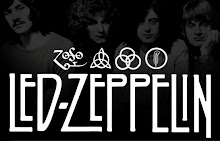This is the famous "Balcony Scene," one of the most renowned in all of Shakespeare. But because of its romantic associations it is often misunderstood. Romeo's passion for Juliet is unambiguously erotic. To Elizabethans sexual desire was not antithetical to romance; it was the essence of romance. In calling for the triumph of the sun over the moon, Romeo is hoping she will not remain a virgin much longer. Women who prolonged their virginity excessively were thought to suffer from "green-sickness," a malady which could only be cured by healthy lovemaking. Thus the entire opening to this scene is devoted to Romeo's fevered desire that she will make love with him. Despite his passion, he is shy enough, and polite enough, not to simply burst in upon her. It is the tension between his overwhelming desire and his reticence that shows how much he truly loves her.
The comparison of a woman's eyes to bright stars was a commonplace, but Shakespeare makes it new by elaborating it in a dazzling series of lines dwelling on the luminosity of Juliet's beauty. In what way does he say her eyes are brighter than stars? Note the physically intimate image of ll. 24-25. Any poet could call his lady angelic; Shakespeare composes a mini-poem on the theme in ll. 26-32. Pay particular attention to the note on l. 33, which is consistently misinterpreted and even misquoted by people unfamiliar with Elizabethan usage. Note that it is Juliet who is thinking through the consequences of their love more systematically and practically than is Romeo. Does this make her less romantic than he? Explain your answer. Note that it is a series of coincidences which moves this affair along so quickly without Juliet being portrayed as shameless. How does Juliet's speech at ll. 58-60 reveal both her love and her fear? Note that she almost immediately speaks of the death that threatens him. From the beginning their discourse is threaded with allusions to death. When he says he is in more danger of being slain by her eye, he is using conventional courtly language which goes back centuries. In l. 82 "pilot" is used in the original sense of one who expertly guides a ship through hazardous waters.
Subscribe to:
Post Comments (Atom)

No comments:
Post a Comment